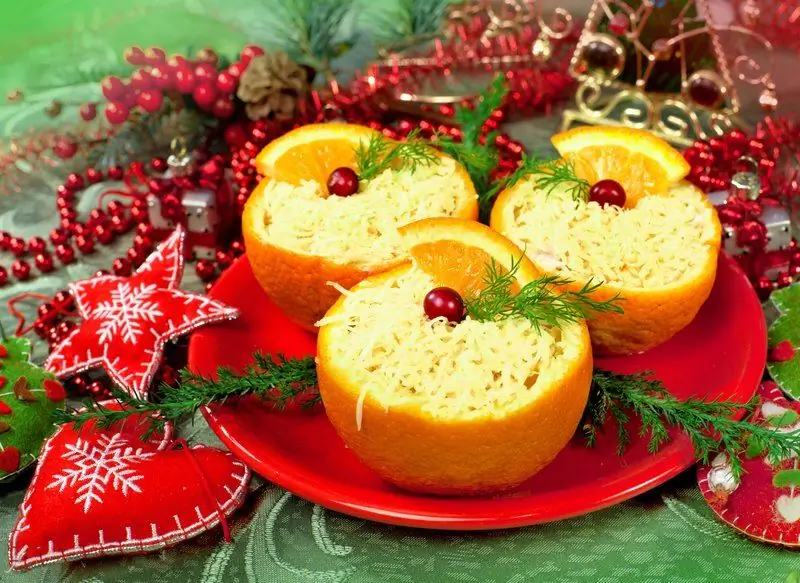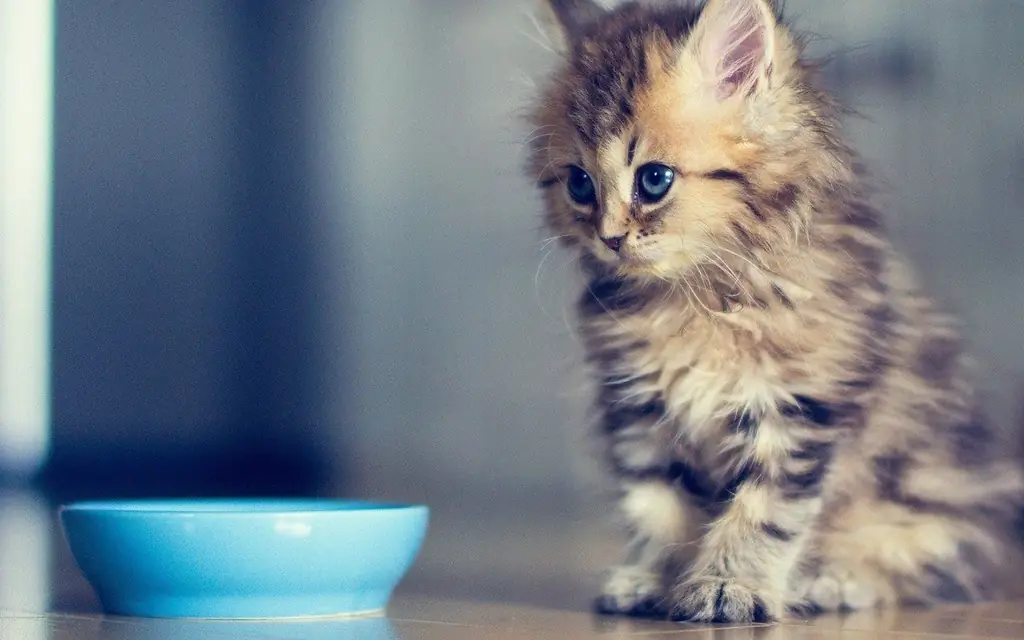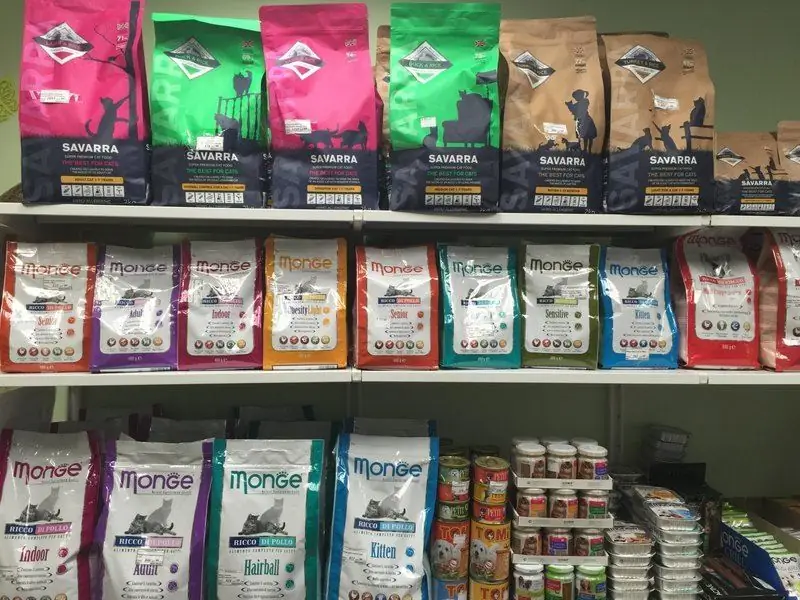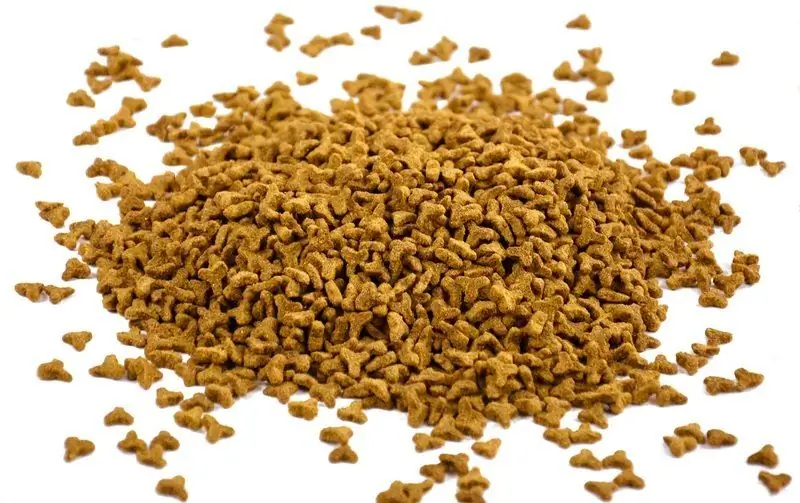
Table of contents:
- How to store dishes after a feast so that they do not deteriorate ahead of time
- Store food in a glass or airtight container
- Observe commodity neighborhood
- Do not leave spoons or forks in plates
- Freeze surplus meat products
- Prepare a dish of foods that will soon go bad
- Cover the slices with cling film
- Author Bailey Albertson albertson@usefultipsdiy.com.
- Public 2023-12-17 12:53.
- Last modified 2025-01-23 12:41.
How to store dishes after a feast so that they do not deteriorate ahead of time

On New Year's Eve, the hostesses are busy in the kitchen all day, so that the table literally burst with food. And almost always after the celebration there are many products left. So that they do not deteriorate ahead of time, certain storage rules must be followed.
Store food in a glass or airtight container
Do not put food in the refrigerator open, otherwise they will quickly become chapped and spoiled. In addition, they will be saturated with each other's smells and become completely inedible. All food leftovers must be placed in sealed containers: glass or ceramic containers with lids. If there are not enough containers, simply cover the plates with cling film or foil.
The main thing is, in no case, do not store food in aluminum dishes, as its structure can be disturbed upon contact with food. Metal particles will penetrate the food and it will quickly deteriorate. In addition, when you finish eating salads and side dishes, aluminum will get into your body, which is extremely harmful.
Observe commodity neighborhood
In order for New Year's dishes to remain fresh and tasty for a long time, it is necessary to observe the commodity neighborhood. Food categories such as the following cannot be stored on one refrigerator shelf:
- frozen and thawed foods;
- fruits and vegetables with meat, fish and dairy products;
- wet and dry foods;
- ready meals and raw foods.
Naturally, in an ordinary refrigerator it is hardly possible to provide a separate shelf for each type of food. You can store incompatible foods in the neighborhood only if you arrange them in sealed containers or wrap them tightly with plastic. Remember that regular containers with lids and foil allow odors and moisture to pass through.
Do not leave spoons or forks in plates
Many housewives unwisely send salad bowls, bowls and plates together with spoons, forks and ladles to the refrigerator, thereby significantly reducing the shelf life of dishes. First, upon contact with the products, the metal begins to oxidize. Its particles get into food, giving it its characteristic unpleasant aftertaste. Secondly, oxidation creates a favorable environment for the multiplication of microbes and bacteria, which is why food spoils very quickly. And even if the food tastes and smells completely normal, they can already cause indigestion or even food poisoning.
Freeze surplus meat products
Sausage, meat and fish dishes, vegetables, herbs and even cheeses - all this can be safely frozen. This will extend the shelf life of your food by another month or so and free yourself from the hassle of cooking. And some dishes can be reheated in the microwave or oven for the Christmas table.
Prepare a dish of foods that will soon go bad
Unfortunately, not all products are subject to long-term storage, which means they need to be used as soon as possible. Here are some good options:
- make a hodgepodge or pizza from meat and sausage leftovers (the leftovers of pickles, olives and olives, peas and corn will also go there);
- boil compote or mulled wine from fruits;
- make hot sandwiches from bread or dry breadcrumbs for soup;
- Make a casserole from the mashed potatoes.
Cover the slices with cling film
If the meat, fish, cheese, vegetable or fruit cuts have remained practically intact, you can put them in the refrigerator, having previously tightened with plastic or covered with foil. In this form, all this can stand for a couple of days.
Recommended:
New Year's Salads: New 2019, Recipes With Photos And Videos

What new salads can be prepared for the New 2019 year. Step-by-step instructions with photos and videos
The Better To Feed A Kitten: Natural Food, Ready-made Dry And Wet Food, What Foods You Can And Cannot, Feeding Rules, How Many Times A Day

Kitten feeding rules. Veterinarian recommendations. Features for every age. Prohibited and permitted products, prepared feed. Feed reviews
Analysis Of Cat Food: Comparison Of Their Composition, From Which Dry And Wet Food Is Made, Analyzer Of Components (ash, Preservatives, Etc.)

What ingredients should be present in cat food and what ingredients should be avoided. How diets differ from each other
Is Dry Food Harmful For Cats: Dangerous Ingredients In The Composition, What Harm Can Low-quality Food Cause, The Opinion Of Veterinarians

Are ready-made diets dangerous for cats? What diseases can dry food cause? How to choose a safe and healthy product
What Food To Feed The Maine Coon (adult Cat And Kitten): Dry And Wet Food, Recommendations, Permitted And Prohibited Foods

How to feed a kitten and an adult Maine Coon cat. What products are allowed to be given to animals. How to choose dry food for Maine Coon
